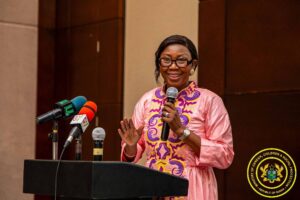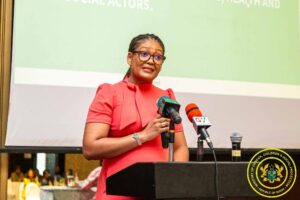Ghana has taken another decisive step in the battle against gender-based violence (GBV) and sexual harassment, as the Ministry of Gender, Children and Social Protection (MoGCSP), in collaboration with the ECOWAS Gender Development Centre (GDC), convenes a four-day National Training Workshop on Mitigating and Addressing GBV and Sexual Harassment in Accra from September 15–18, 2025.
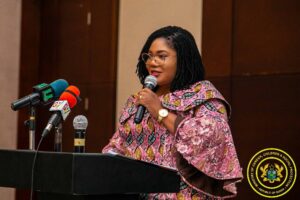
The workshop brings together critical actors from the judiciary, health, and social sectors to strengthen their skills and coordination in preventing and responding to abuse. Beyond training, it represents a rallying point for government, regional bodies, and civil society to confront one of the gravest violations of human rights in Ghana and across West Africa.
A Grave Violation, a Shared Responsibility
In her opening remarks, Hon. Dr. Agnes Naa Momo Lartey, Minister for Gender, Children and Social Protection, was clear: domestic, sexual, and gender-based violence is not a “private matter”—it is a serious breach of fundamental freedoms that undermines national development and erodes progress across the ECOWAS region.
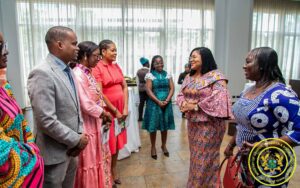
“Every act of violence silences a voice, weakens a community, and delays Ghana’s growth agenda,” she said, stressing that the government under President John Dramani Mahama has made gender equality and women’s empowerment central to national policy.
She highlighted recent reforms, including the Affirmative Action (Gender Equity) Act, 2024 (Act 1121), the Revised National Gender Policy, and the Social Protection Act, 2025, as legal safeguards to protect the vulnerable and promote inclusion.
Voices of Solidarity
The call to action was echoed by Madam Laila Heward-Mills, Director of the ECOWAS National Office, who stressed that ending GBV demands a coordinated approach across all sectors. “Capacity-building initiatives like this are not optional—they are critical if we are to build a safe and just society,” she said.
From the regional front, Madam Sandra Oulaté Fattoh, Director of the ECOWAS Gender Development Centre, urged stakeholders to refuse complacency:
“We cannot afford to turn a blind eye to GBV and sexual harassment. The health and well-being of our communities are at stake. Every action counts within the medical, judicial, and social protection chains.”
She reaffirmed ECOWAS’ continued support for Ghana in building a more inclusive and violence-free future.
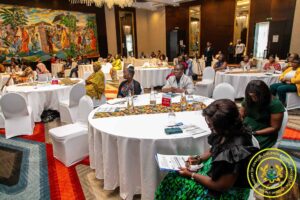
A Call Beyond the Workshop
This national workshop is more than a training exercise. It is a call to every Ghanaian—from policymakers to community leaders, from teachers to parents—to recognize GBV as an urgent national crisis that demands solidarity, vigilance, and action.
Ending gender-based violence requires not only strong laws but also cultural change, survivor support, and collective accountability. It is about safeguarding dignity, protecting rights, and ensuring that women, men, and vulnerable groups can participate fully and equally in shaping Ghana’s future.
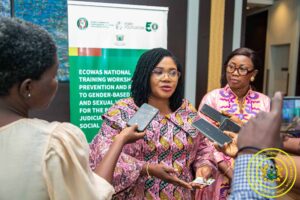
As the conversations continue at the Cedi Conference Centre in Accra, the message is clear: gender equality cannot wait. Silence is not an option. Action is the only path forward.



